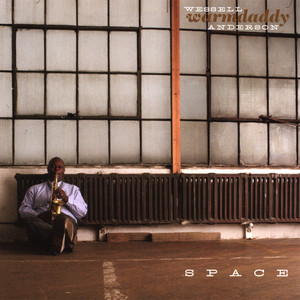
- 歌曲
- 时长
简介
Wessell Anderson (Alto and Sopranino Saxophones) was born on November 27,1964 in the Crown Heights neighborhood of Brooklyn, New York. Wess began studying classical piano but by the time Anderson was 12 years old, his father, a drummer performing with Cecil Payne, introduced him to jazz via Charlie Parker, inspiring him to take up the alto saxophone and change his musical pursuits. After private lessons, the young reedman attended Jazzmobile Workshops in Harlem, where he studied theory, reading music and performance with the likes of Frank Foster, and Charles Davis. Jazzmobile classes were supplemented with jam session performances led by saxophonist Sonny Stitt at the Blue Cornet, then Wess began attending other jam sessions at the then-active Brooklyn and Queens jazz clubs like Pumpkin's, and the Village Door where he learned the discipline needed for performance. Prior to beginning his college career, Wess met Wynton and Branford Marsalis, who have become instrumental in his professional success. They encouraged him to continue his studies, pointing him in the direction of Southern University and the teachings of clarinetist Alvin Batiste. Wess became exposed to classical literature on the saxophone and dealt with the true articulation of the instrument. Wess toured with vocal great Betty Carter for two months before Wynton Marsalis asked Anderson to tour with The Wynton Marsalis Sextet. Soon, Anderson was off to the studio and the road with Marsalis helping make some of the most defining music of the late-'80s and early-'90s jazz revival. Although Marsalis disbanded the group in 1994, Anderson became the lead alto saxophonist with Marsalis’ Lincoln Center Jazz Orchestra, a position he held until the summer of 2005. Wess performed in many programs presented by Jazz at Lincoln Center, including the world premieres of Wynton Marsalis' In This House, On This Morning, Jazz: Six Syncopated Movements, “All Rise”, and the Pulitzer Prize composition of "Blood on the Fields". In 2001 Wess joined the faculty of Julliard School of Music Jazz Studies as a professor of saxophone. It was during his time with Marsalis’ group that Anderson began to develop his own sound: a mix of traditional New Orleans jazz and a sweeping blues style similar to that of Cannonball Adderley. Anderson's 1994 debut album “Warmdaddy In The Garden Of Swing” (Atlantic Records) featured Anderson playing a set of all original compositions. This was followed with the 1996 release entitled “ The Ways Of Warmdaddy” (Atlantic Records), then a 1998 live recording at the famed jazz club The Village Vanguard on Leaning House Records. Other recordings include special guest performances with Joe Jackson's Grammy Album entitled, Symphony No. 1 (1998) and dates with Eric Reed, Marcus Roberts, Branford and Delfayeo Marsalis, Ruth Brown, and blues legened Gatemouth Brown and Rodney Whitaker. Wess currently performs and teaches around the world, and is associate professor of jazz studies at Michigan State University where he continues to encourage students to learn the history as well as the techniques of improvisation and jazz saxophone. Wess has a new independent CD release entitled “Space” featuring Lawrence Siebirth, Mark Gully, and Roland Gurerin and is endorsing his own signature model saxophone called the “Warmdaddy” Model made by Manning Custom Horns (Mike Manning).

